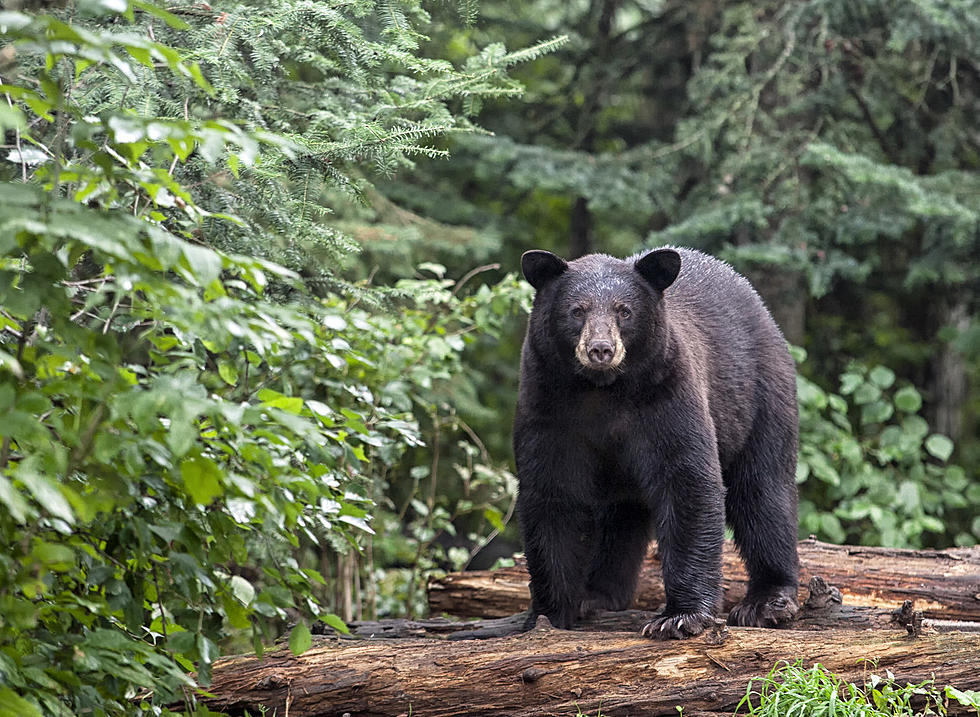
The Bears are Awake – What to do if YOU See One
The Bears are Awake - What to do if YOU See One
The Washington State Department of Fish & WIldlife are once again getting reports of bear sightings around the state of Washington. The bears have awakened from their long Winter nap.
What kind of bears exist in Washington State?
The most common bear you’ll encounter in Washington is the Black Bear. The other, The Grizzly Bear, is very rare in Washington. Grizzlies have only been spotted on occasion in the North Cascades and the Selkirks (in the upper North East portion of our state - above Spokane.)
We hope these twelve common sense recommendations will help you NOT see a bear.
Each and every site that offers advice on bears - starts with your campsite or your backyard IF you live in bear country.
1) Keep your campsite clean.
It's very important for you to store your food and garbage out of sight and in closed vehicles. If you have gallon plastic bags with ziplocks…use them and keep the smell of food and garbage away from your tent.
2) Avoid camping next to trails or streams as bears and other forms of wildlife use these as travel routes
3) Avoid camping near natural bear food sources such as berries.
4) The 100-yard rule: When not camping in a National Park or other areas with designated camping sites, locate your cook area and food cache at least 100 yards downwind from your tent.
The Food/Garbage storage Advice Section
5) Never leave food unattended in your campsite unless it is properly stored.
6) Do not bring food or odorous non-food items into your tent. This includes chocolate, candy, wrappers, toothpaste, perfume, deodorant, feminine hygiene products, insect repellent, and lip balm.
7) Avoid canned foods with strong odors such as tuna.
8) Never put food scraps or garbage in the campfire; this will be like putting a batman beacon in the sky and attract hungry bears and skunks.
9) For your safety, Do not keep food, medicine, chapstick/lipbalm, shampoo - Anything that smells - in your tents or sleeping areas.
10) Keep your stoves, barbeques, in a vehicle or secure place when not using. Do not pour used cooking oil or food remnants on the ground.
(Similar to advice #4 above, here's the 100 foot - downwind from camp piece of advice pop up again.)
11) When camping in the back country hang food and garbage from a tree limb, at least 10 feet from the ground and 5 feet from the tree trunk. This tree should be at least 100 yards, downwind from your sleeping area.
12) Some bears are attracted to motor oil, insect repellant, any sort of alcohol and other things that look like food. Make sure you put these items away.
A bear’s diet is made up of mostly wild plants and seeds. However, bears can start looking for food in all the wrong places, including porches, sheds, garages, garbage cans, barbecues, kennels, and bird feeders. - Rich Beausoleil, bear and cougar specialist for the Washington Department of Fish and Wildlife
Remember: Never feed a bear. A fed bear is a dead bear.
A wild bear can become permanently food-conditioned after only one handout experience. The unintended reality is that these bears will likely die, being killed by someone protecting their property, or by a wildlife manager having to remove a potentially dangerous bear. -wdfw.wa.gov
Here's what to do if you stumble upon a bear on your hike or in your backyard.
Bear attacks on humans are extremely rare. To help avoid one, know what to do if you encounter a bear. Here are some tips on how to react if you see one:
- Give the bear a way to escape (Don’t make it feel cornered.)
- Keep away from bear cubs.
- Stay calm and do not run or make sudden movements.
- Back away slowly as you face the bear - talking to it in a firm tone of voice to let it know you are a human. As you face the bear - do not look it in the eye.
IF YOU ARE ATTACKED BY AN AGGRESSIVE BEAR
- If you are attacked by a BLACK BEAR - Try and get into a vehicle or building. If this is not possible, DO NOT PLAY DEAD. Fight back using rocks, sticks, feet and hands to fend off the bear focusing on hitting and kicking the bear in the face and the muzzle. Shout during combat and make loud noises.
- If you are attacked by a GRIZZLY BEAR - Leave your pack on and play dead. Lay flat on your stomach, keep your hands over the back of your neck and spread your legs apart to help not getting flipped over by the bear. Lay still until the bear leaves the area. This is your only chance to survive a grizzly attack.
The Department of Fish and Wildlife responds to bear and cougar sightings - only when there is a threat to public safety or property.
If you are experiencing an emergency, call 911.
If you encounter a bear or cougar problem, and it is not an emergency, contact the nearest Department of Fish and Wildlife office between the hours of 8 a.m. and 5 p.m., Monday through Friday.
In the Spokane Area: 509-892-1001
In North Central Washington: 509-754-4624
In King County: (425) 775-1311
Yakima/Ellensburg: 509-575-2740
All other regions, click this link
Source: Washington State Department of Fish and Wildlife
Must Have Items For Camping With Kids
Gallery Credit: Clay Moden
Don't Be That Guy! Top 10 Montana Unwritten Camping Rules.
Gallery Credit: Bejay Lindseth
More From 610 KONA









